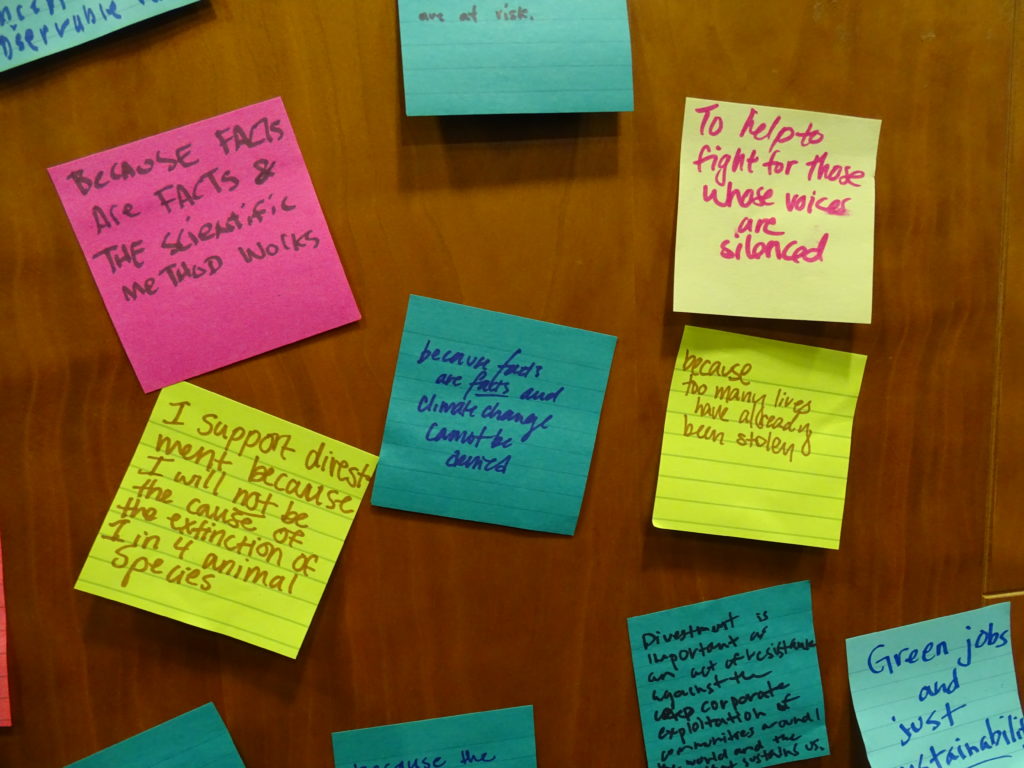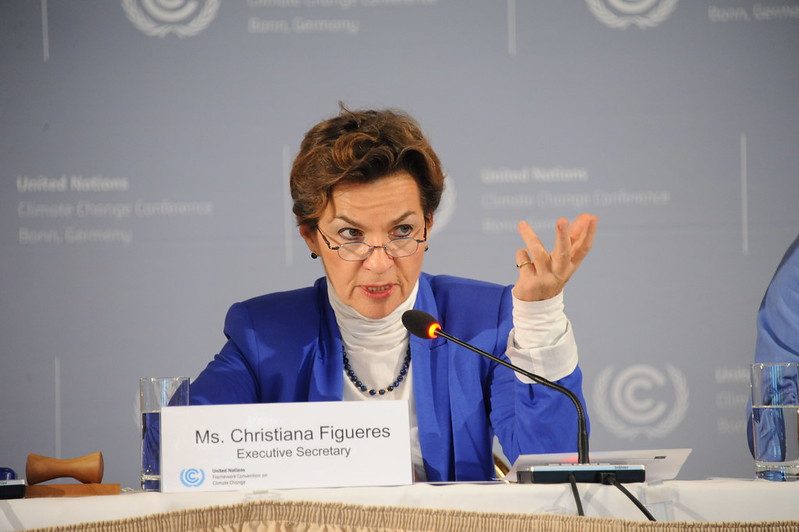This page resurrects and extends an archive of news coverage, social media, and announcements since 2014 related to the Swatdivest, Sunrise Movement, and Swarthmore Mountain Justice. As we work to reorganize and migrate the data to this site, please bear with us. This is a work in progress.
Prof. Jeffrey Sachs, Director of the Center for Sustainable Development at Columbia University, wrote in The Boston Globe on 9 March 2020 that students have had it right all along on divestment and climate disruption, while university trustees and administrators have failed to be realistic.
Since the US fossil-fuel divestment movement started in earnest in November 2012, with the launch of Go Fossil Free by the climate group 350.org, universities have considered whether to divest fossil fuels from their endowments. Students have pushed university administrators to divest, while administrators have pushed back, lecturing students about the “real world” of sound investing and the purported need to keep fossil fuels in the endowments. Eight years on, the lessons are clear. The students are the ones living in the real world, while university administrators, trustees, and endowment managers have been living in an energy fantasyland.
The divestment movement was launched because it was clear to climate scientists that the three fossil fuels — oil, coal, and gas — would have to be phased out and replaced by renewable energy sources, such as wind and solar power, in order to avoid catastrophic climate change. The shift from carbon-based fossil fuels to renewable energy is known as decarbonization. We are in no danger of running out of fossil fuels, but relying on them, as many reports have warned, is dangerous. In order to pursue a safe path to decarbonization by 2050, those reports demonstrate a significant share of the fossil fuel reserves as of 2012 would have to be “stranded,” or left underground.
The implications were clear enough to close observers. Major oil, gas, and coal companies that were touting new multibillion-dollar exploration and development projects, including the fracking of unconventional oil and gas, were on the wrong track, squandering shareholder wealth by developing new reserves that would never be used. Share prices would eventually be marked down. Industry forecasts of decades of rising fossil fuel use would prove wrong.
The fossil-fuel industry was therefore already a bad bet in 2012, except to industry lobbyists and to money managers looking backward rather than forward. The US fossil-fuel industry perhaps came to believe its own hype, that with enough lobbying clout there would be smooth sailing in the years ahead. Yet despite President Trump’s pro-fossil-fuel policies, and his withdrawal of the United States from the Paris climate accord, most governments around the world, and indeed most state governments in the United States, are sticking with the Paris accord and are cutting back on fossil fuels and shifting to renewable energy.
If more university administrators had understood these facts earlier, they would have listened to their students, not their money managers or their donors. They might have recognized that well-heeled donors linked to the fossil-fuel industry who opposed divestment were not necessarily promoting the interests of the university over the fossil-fuel companies.
Read the whole article on The Boston Globe site.

Nick Engelfried published a piece today in Waging Nonviolence about the state of the resurgent student-led divestment movement, and he recorded Swarthmore College students’ historic role in launching the global movement.
By tapping into existing networks and old campaigns, a new wave of student activism is making the fossil fuel divestment movement bigger, bolder and more creative. …
… The nationwide fossil fuel divestment movement first took off at Swarthmore College, when students there were inspired to launch a fossil fuel divestment campaign after a 2010 visit to Appalachian communities affected by mountaintop removal mining. Previously, a scattering of student campaigns had experimented with pressuring schools to end investments in fossil fuel industries. However, while these early efforts gave climate activists valuable experience navigating the world of school investments, they were largely isolated. …
… The Swarthmore campaign was different. It started when national climate groups like 350.org were looking seriously at divestment as a strategy. By 2012 several other East Coast and Midwest schools — including University of North Carolina-Chapel Hill and University of Illinois — had started their own divestment campaigns. Then, later that year, 350.org held its Do The Math Tour, a nationwide series of events designed to kick the divestment movement into high gear. Within a few weeks, campaigns spread to more than 100 campuses. …
Read the entire article at Waging Nonviolence.
In an editorial on 27 February 2020, The Phoenix staff called on the Board of Managers to drop its ban on divestment and to “immediately pursue divestment from fossil fuels.”
Here is an excerpt. Read the editorial in its entirety on The Phoenix website.
The success of fossil fuel divestment protestors at these institutions is a testament both to the severity of the climate crisis and to the strength of the fossil fuel divestment movement on campuses nationwide. The very college, however, where this movement began in 2010 has, a full decade later, still refused to divest. Swarthmore College, despite divestment protests on our campus having gained national attention and widespread support among the student body, continues to invest undisclosed amounts of its over $2 billion endowment in fossil fuel companies. When pressed, the College Board of Managers and President Valerie Smith have defended this choice by citing a ban on ethical investments and divestments, implemented by the Board in 1991. It is the position of the editorial board of The Phoenix that the Board of Managers should remove this ban and immediately pursue divestment from fossil fuels.
In 1986, Swarthmore divested from apartheid-era South Africa due to protests and growing pressure from both student activists and prominent Board members. In 1991, however, the Board resolved that going forward, the endowment would be managed solely “to yield the best long term financial results, rather than to pursue other social objectives.” Since 1991, the Board of Managers has resisted student calls for divestment from a wide range of economic institutions, including the fossil fuel industry. They have continually silenced community voices on this issue by maintaining closed meetings after student protesters disrupted one in 2013, and have consistently rationalized their refusal to divest as being in the college’s best interests.
We, at The Phoenix, reject this notion that the college’s “best interests” are solely defined by its ability to accrue wealth. Swarthmore’s continued investment in fossil fuel companies means that our education, our campus construction projects, our professors, and our financial aid packages are all funded, at least in part, by exploitative corporations that are destroying our planet. Therefore, though it is meant to prevent “ethically motivated” investments, the Swarthmore Board of Managers’ adherence to the 1991 ban is in itself an ethical choice — a choice driven by an ethics of putting wealth before accountability, of willful ignorance towards our endowment’s larger influence, and of neglecting its own community’s voices. The Board’s concern for Swarthmore’s “long term” financial wellbeing will be a moot point if, as emissions from fossil fuel use continue to rise, climates around the world become unlivable.
As members of the Swarthmore community, we have a moral obligation to acknowledge the ongoing climate crisis — something many students, faculty, and staff agree on. One tangible action the school can take is divestment. Climate change is present and ever-worsening. It disproportionately impacts the world’s most vulnerable populations. This can be seen in communities like nearby Chester, which is home to a waste incinerator that releases toxins into the air and is where Swarthmore sends all of its waste.
Read the editorial in its entirety on The Phoenix website.

Christiana Figueres ’79 is a Swarthmore alum, who served as Executive Secretary of the United Nations Framework Convention on Climate Change (UNFCCC) from 2010-16 and declined an honorary degree from Swarthmore College because the Swarthmore College Board of Managers refuses to divest its $2b endowment of fossil fuels holdings.

In her new book, The Future We Choose: Surviving the Climate Crisis, Figueres and her co-author, Tom Rivett-Carnac, offer ten things one can do about climate change, and they write:
“It’s time to participate in non-violent political movements wherever possible” … “Civil disobedience is not only a moral choice, it is also the most powerful way of shaping world politics.”
In 2015, Figueres wrote a letter to the Chair of the Board of Managers, Gil Kemp, and Chair of the Board Investment Committee, Christopher Niemczewski calling on the Board to divest.
On 23 February 2020, The New York Times published a letter to the Editor by Daniel Fernandez ’23 calling on Swarthmore College to divest its endowment of fossil fuel holdings.
I applaud the members of Divest Harvard and Harvard Forward. They are fighting the good fight.
Like Harvard, my own institution, Swarthmore College, where I am a freshman, has remained intransigent in the face of a large student divestment campaign.
Like Harvard, Swarthmore knows that it can divest because it has in the past, from apartheid South Africa, and because numerous institutions have remained unscathed after divesting from fossil fuels.
Like Harvard, Swarthmore claims to care about the climate crisis. It should put its money where its mouth is.
Daniel Abel Fernandez
New York Times, 23 February 2020
Swarthmore, Pa.

Seven years ago, a group of Swarthmore students took a trip to West Virginia, where they The SGO forum on divestment last Friday appears to have produced more tension than dialogue. This Ever since the Board of Managers chose not to divest from fossil fuels, I’ve started envisioning

On Friday afternoon around 12:30 p.m., the Student Government Organization, Student Budget Committee, and Sunrise Swarthmore Seven years ago, a group of Swarthmore students took a trip to West Virginia, where they Sunrise has had a good week. SGO recently announced that they will invest surplus funds from

The Student Budget Committee (SBC) is planning on moving its residual surplus funds from Swarthmore’s capital expenditures account into a fossil-free quasi-endowment, according to SBC Chair Roman Shemakov ’20.

On March 19, 2015, Swarthmore College saw the longest sit-in in fossil fuel divestment history. On 9 AM that Thursday, students and alumni marched into the Investments Office demanding that the urgency of divestment from the fossil fuel industry finally be addressed and considered. For mor

Sunrise has recently been advocating for a referendum on Swarthmore’s investment policy. The group has called Sunrise Swarthmore collected digital signatures last week in an effort to call a Student Government Organization Sunrise has had a good week. SGO recently announced that they will invest surplus funds from
Originally posted in Gregory Brown, vice president for finance and administration